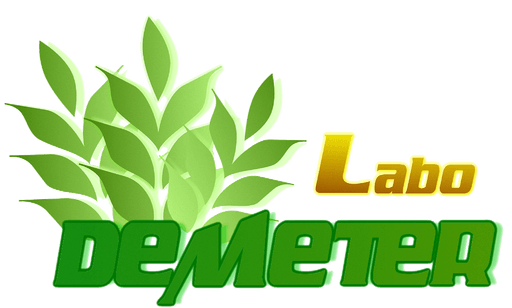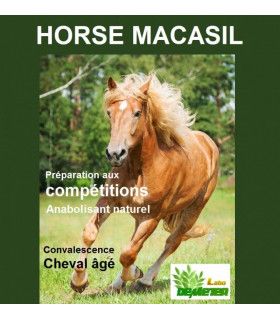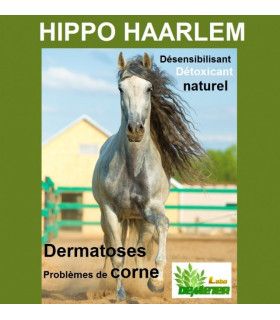Cushing's disease in horses
Cushing's disease in horses
Cushing's disease is a very common hormonal disease in older horses, especially from the age of fifteen. This disease is particularly marked by the presence of woolly and shaggy hair. Its importance should not be overlooked as its outcome can be fatal.
Symptoms of Cushing's disease
Cushing's disease in the horse initially presents symptoms that are not very visible and not very specific, a diagnosis is therefore difficult at the beginning of the disease: loss of form, weight loss, lethargic state, delayed or locally abnormal moulting.
In the advanced stages, the symptoms are more marked. The most remarkable of these is the establishment of hypertrichosis (or hirsutism), it is an excessive development of hairs, which can begin with anomalies of the moult (delay or rapid regrowth of thick hairs after mowing). Eventually, the horse may then have long, curly hair all over its body. It is a very frequent and characteristic sign of the disease.
In more than one out of two cases, the horse has laminitis; it is the severe inflammation of the foot, in particular of the podophyllum, very painful, in the long term the third phalanx can switch in the hoof and even pierce it.
One can also observe muscle wasting and regional fat deposits, which give the abdomen a distended, pendulum appearance.
The horse can develop polyuria/polydipsia: he urinates in abnormally high quantities, and compensates for this loss of water by increasing the intake of drink. Hyperhidrosis, i.e. excessive sweating, is also possible.
Finally, neurological disorders may appear, such as ataxia (balance disorders), blindness (loss of vision) or even narcolepsy (sudden drowsiness).
Causes of Cushing's disease in horses
The hypothalamus secretes dopamine, a well-known molecule, which among other things has the role of slowing down the production of ACTH in the pituitary gland.
Cushing's disease results from the loss of this action of dopamine on the pituitary gland. With age, there may be a decrease in the number of dopaminergic neurons which are very sensitive to oxidative stress. This leads to a change in the functioning of the pituitary gland, a gland located in the brain responsible for the synthesis of many hormones.
ACTH is then produced in too large quantities. However, this stimulates the secretion of steroid hormones, produced by the adrenal glands, such as cortisol (corticosteroid secreted naturally by the body). They are then also synthesized excessively.
These steroid hormones (cortisone family) are the cause of the symptoms of the disease because they intervene in stress and put the body in a condition for survival, in particular by allowing the mobilization of reserves (carbohydrates and lipids, protein catabolism) .
Morgan horses and ponies appear to be at higher risk of developing Cushing's disease, but all breeds are affected. There is no gender predisposition.
The diagnosis of the disease by the veterinarian goes through the observation of the symptoms during the clinical examination, as well as through the use of tests. The most reliable of these is the measurement of ACTH in the blood: in the case of Cushing's disease, plasma ACTH increases. If the result is not significant enough, another test can be performed:
The dexamethasone suppression test: in a healthy horse, dexamethasone (synthetic cortisone) must reduce the plasma concentration of cortisol (cortisone naturally present in the blood). The blood of the horse with Cushing's disease will retain a high plasma cortisol concentration, revealing that the producing cells, which should normally adapt the synthesis according to the level of cortisol in the blood, no longer respond. To simplify, we can see it as a machine producing cortisone which is racing and whose brake is defective.
What is the normal level of ACTH in horses (pg/ml)?
- <35 : normal value
- between 35 and 50 : doubtful
- >50 : increased value
- >100 : PPID (Pituitary Pars Intermedia Dysfunction)
Beware of the significant rate of variability depending on the time of day.
Source: National Veterinary School of Nantes (Oniris)
Possible treatments for Cushing's disease in horses
The treatment of Cushing's disease in horses has several aspects.
Maintenance and prevention
We first put in place hygienic measures which aim to keep the horse in good living conditions: food, regular care: dental and foot care (in particular the management of laminitis, which can go through the establishment of a shoeing in M), mowing in summer (due to hypertrichosis), up-to-date vaccinations and deworming.
You can carry out an annual cure of vitamin supplements, in particular to boost the immune defenses of the horse.
In fact, Cushing horses are more vulnerable to infections and other attacks on the immune system. For chronically lax horses, there are also vascular stimulants to limit blood flow to the hooves.
Medical treatment
We can then treat the hormonal dysfunction at the origin of the disorders, by slowing down the production of ACTH.
The standard treatment today is pergolide, a dopaminergic substance that inhibits the pituitary gland.
Its role is to replace dopamine which is insufficiently secreted by the aging body. It acts like dopamine by suppressing the production of ACTH. It must be given daily for life, and its effectiveness is checked by regularly measuring ACTH through blood tests and clinical observations.
The adrenal gland can also be treated with trilostane, which is an inhibitor of steroid biosynthesis. This treatment is also given every day for life, but has a very high cost and is therefore often dissuasive. Moreover, it has no action on the synthesis of ACTH and the other roles of dopamine.
Conclusion
Cushing's disease is therefore a common disease of older horses, which must be taken care of as soon as possible in order to avoid complications that darken the vital prognosis and life expectancy of the horse, in particular laminitis. With a well-conducted treatment, the horse can regain a completely normal coat as well as a good body condition and resume moderate physical activity.




